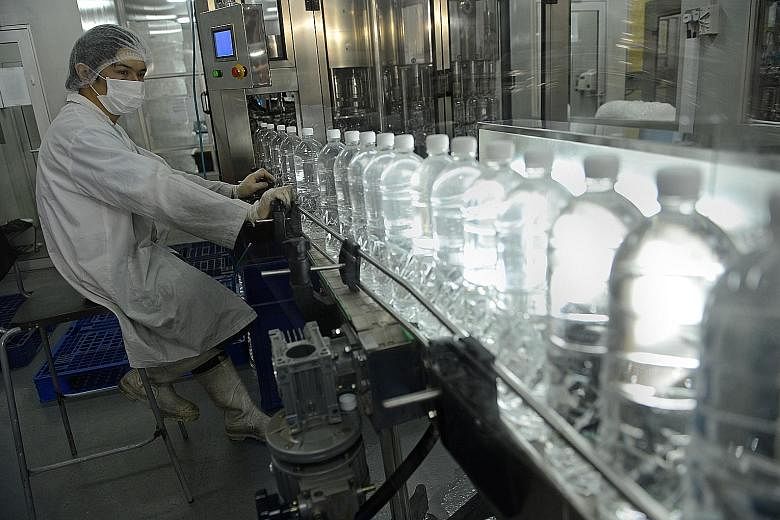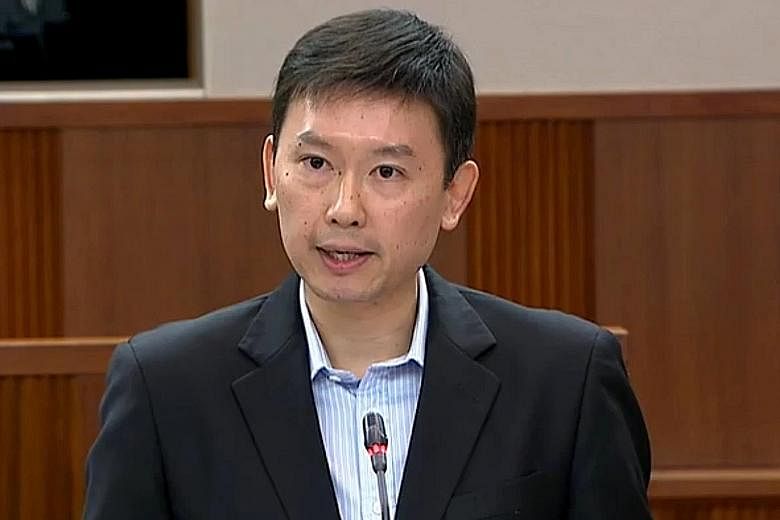The rise in water and electricity prices as a result of recent domestic rate hikes constitutes a small percentage of total business costs for most companies, said Senior Minister of State for Trade and Industry Chee Hong Tat in Parliament yesterday.
Costs of business owing to water price increases since July last year are estimated to have risen between 0.1 per cent for the chemical industry and 0.26 per cent for the food services industry, said Mr Chee. He was responding to a parliamentary question from Nominated MP Thomas Chua on the impact of the price hikes on sectors with high water usage.
Labour and rent, in comparison, are more sizeable components of overall costs, said Mr Chee.
For the first time in 17 years, water prices were raised by 30 per cent over a year from July last year.
Meanwhile, electricity tariffs rose by an average of 6.9 per cent in the third quarter, following two consecutive quarters of increases.
Mr Chee, who is also Senior Minister of State for Education, said: "Government agencies have been working with our industry partners to help companies reduce their water usage, which will reduce their water bills."
-
IMPACT OF WATER PRICE HIKES
-
0.1% Estimated rise in business costs for chemical sector.
0.12% Estimated rise in business costs for general manufacturing sector.
0.17% Estimated rise in business costs for accommodation sector.
0.26% Estimated rise in business costs for food services sector.
He said the Economic Development Board and national water agency PUB are working with businesses to implement water-efficiency measures and tap alternative sources of water, such as seawater, for cooling industrial equipment.
Food waste digesters, which can turn discarded food into compost and can be used for water recycling, are also being explored by the Singapore Food Manufacturers' Association and the Waste Management and Recycling Association of Singapore.
To help cut down on water usage, businesses can turn to PUB's Water Efficiency Fund to implement water-saving measures, or apply for Enterprise Singapore's Capability Development Grant, which defrays up to 70 per cent of the cost of projects that build up a firm's water-efficiency standard.
Said Mr Chee: "I encourage businesses to use the available schemes and adopt measures to save water and improve productivity.
"And if you are successful in achieving cost savings, you can then share some of these savings with your workers and customers."



